All rounders who don't quite cut it get the most flak. They often get promoted before they are ready, and they haven't developed fully yet. So the results are usually inconsistent. Add to that being the son of an Australian player and having a brother who also frustrates is painful as well.
Mitchell Marsh seemed to be invented to troll Australian fans. He was fun, and hit the ball hard, bowled faster than medium pace, but none of it clicked.
Even in this tournament, it was classic Mitch Marsh treatment. Langer talked him up like he was his favourite son early on. Then he was dropped from the team entirely when they thought they needed extra bowling. And even when they played Sri Lanka, he was demoted down the order and didn't bat at all. If Australia had a shit game later in the tournament, the narrative right now would be that Marsh isn't good enough.
But instead they moved him back to first drop, and also seemed to unleash him. Australia went with him as a powerplay maximising first drop, and Marsh loves seam bowling, and New Zealand don't bowl spin in the powerplay. In fact, they bowled the least in this tournament.
And so Marsh was the perfect player t go against them. His first three balls were 6, 4 and 4 from Milne. Even if he knocked the ball around after that it was a win. He didn't, and he attacked spin as well. The slog sweep six off Santner was perhaps his most important shot. If there was a chance Australia would slow down when New Zealand tried to strangle the game with spin, Marsh was having none of it.
Australia could not have planned this better. And they didn't, did they.
I mean Mitch Marsh sort of became the accidental number three. The way this team became the accidental champion.
They have tried Smith, maxwell, Christian, Wade, Stoinis, Carey and Phillipe in the last two years at number three.
And when Marsh got his chance, it was in a team where Australia had a half-strength team. This was a case of talent winning out over planning. There was no planning. But perhaps the best representation of that is Josh Halzelood.
On the 5th Feb in 2014 he played a match for the Sydney Sixers. On the 5th of Jan 2020 he played for the Sixers again. In that almost six-year window he played 3 T20s.
All in 2016, the first was in a high scoring game at Joburg, and then two World Cup matches in India. Australia took Hazlewood to a World Cup despite the fact he hadn't played any cricket. This time it was slightly better. But even then, Hazlewood is a good T20 bowler not because of Australia; they never wanted him to be one, they showed no interest in helping him improve.
They didn't even use him in the 2019 World Cup; Justin Langer claimed he was injured, Hazlewood still claims it was a snub. And so he went off and got good at T20 cricket on his own in the last two years. The money in Chennai probably helped, but he also started playing in the Big Bash. And he has got good. He still has a way to go.
But let's look at his first wicket.
The Daryl Mitchell wicket was really the combination of the two Josh Hazlewood's Test and T20. He hit the hard length for three straight balls, Mitchell couldn't get it away. One went to point, the other went to cover, both timed perfectly. Either could have found a gap and gone to the boundary.
But Hazlewood hit that heavy length again, but the ball was different, it was a cross-seam ball where he rolled his fingers down the back. It was pretty much within a foot of the last two deliveries, but also completely different. It was a skill he doesn't use in Tests, and two years ago, he probably didn't think of. And it dismissed the man who beat England.
So if Hazlewood is representative of the players of talent Australia had that they weren't using, Warner is odder still. In the 2016 tournament, Australia turned up with David Warner and Aaron Finch, that's some IPL crores right there. And they didn't open them together.
Imagine having one of the best players in the world in one spot and just like, moving them around. It was odd back then, and being that perhaps the best years of Warner's career happened when there was no World Cup.
Finally, there is one, and it starts with people questioning other David Warner had lost it. And he has lost something, his captaincy and spot in the Sunriserrs Hyderabad on the back of six poor innings, in which two he was run out. It showed two things, an amazing misunderstanding of T20 cricket, and terrible roster design. To think that Warner was finished on the back of a few innings after he was the most dominant force in the IPL for six seasons is bizarre. People still started saying he was finished when he looked a bit ropey in the first game here.
And yet here he is, the second leading run-scorer, at a ridiculous strike rate for a slow scoring tournament. He is not the wild bull of his youth, nor the redeemed figure many tried to force on him. But he has transformed himself into the most effective efficient consistently quick scorer in T20 cricket. And in this tournament, he was what the Sunrisers used to see, and what Australia had been hoping for.
In Warner and Hazlewood, what you had was two immensely talented players being used as they should be. Which is also the team they went up against.
Kane Williamson looks at cricket differently to others. He slows the game down when it is bowled, but he also does it in his thinking. He seemed to work out exactly how to score on this pitch; despite his slow start he still scored quicker than Warner and Marsh. This was an innings, it will be lost because his teammates couldn't match him. But the way he took risks against Marsh and Maxwell was so clever. But that over against Starc where the took on the angles - even though his outside edge did a lot of heavy lifting - it was the thinking behind that over that separates him. Sadly for him, he was the only one who really did work it out, and while they should have pushed 200, Guptill, Phillips and the death hitters couldn't step up with him.
And the same happened in the bowling. Milne, Southee, Sodhi and Santner just couldn't get it right. And at the very same time they were all going for runs (or in some cases, billions of runs), Trent Boult was unplayable. He managed to take the two most important wickets and not get hit off the square. Like Hazlewood, he was a Test specialist who worked on his T20 game as it looked like IPL might move on from him. Tonight he took Finch, giving New Zealand their first chance of winning, and then Warner, their final hope.
But Australia just has more talent. Even if they haven't spent years developing it like New Zealand has, planning for these tournaments like England or had it perfected in T20 franchises like the West Indies.
Australia came into this World Cup with Warner, Finch, Maxwell, Smith, Hazlewood, Cummins and Starc. And of those seven, Smith never batted, Starc had perhaps the worst game of his career and Finch failed.
Babar, Morgan, Williamson, Kohli, and Pollard have been front and centre at times, for good and bad. Finch has been like the guy you invite to the party and who comes, but never even enters your house. He just stays on your driveway. And yet they still won easy.
Their team construction has been a hot mess for a while. Their batting promotion and demotions made absolutely no sense. They were lucky that Marcus Stoinis went off to the IPL to get good at batting in the middle order. But at the same time his bowling slipped so much they didn't get an over in either of the finals.
Matthew Wade was dropped in at number seven, not as a cunning ploy, but because they had to put him somewhere.
He has never been good at number seven. He has never been good at T20 when not opening, yet he and Delhi Capitals middle odder Stoinis got them to this final.
People will point to the fact that they won the toss six times in this tournament, and the only time they lost was England beat them. But if you want luck and chance. They were five wickets down after 12.3 overs in the semi-final with bowlers who can hit to come, and one guy who taught himself and one guy who just played the best middle overs knock of his life saved them.
And remember the game they lost they abandoned two things, their ability to bat number Wade at number seven so they could fit an extra bowler in the side, and Mitch Marsh at number three. They went back on those decisions and that is how they won the two finals. The good fortune goes further than that of course. They got to play New Zealand, who are marking a very good claim to be the best all-format team in the world, and still not the best team in any format on either side of the Tasman.
England smoked them, viciously, in the early part of this tournament. They looked like the best team all tournament until New Zealand beat them in the semi-finals.
And if they didn't look like the best, then Pakistan did. Australia completely outthought Pakistan, who of all teams looked rigid and unable to change. But even then, Pakistan really only needed one more wicket to end that.
Australia also had to take a gamble in every game. They either picked five bowlers, and had Ashton Agar as their number seven, which looked hilarious against England. Or they picked the extra bat and hoped they could combine four overs between Marsh, Stoinis and Maxwell. In the semi-final this worked incredibly well. In the final, they went for a touch under 10 runs in their four overs. That is actually ok if your front-liner bowlers make up for it, but Starc went for 60 runs.
Starc has - unsurprisingly - has never gone for this many runs in T20 before.
Not even close, this was ten runs more than his previous worst-ever figures. Even in games he has not finished because he has been bowling bad he's never even been close to this bad. This was undoubtedly the worst Mitchell Starc has bowled in a T20 match. In a World Cup final. This man won them the 2015 World Cup, and kept them in the 2019 tournament. And he was dire.
Between him and the fifth bowler overs, they went for 99 runs.
New Zealand still didn't get away, though. And that was because of the others. I covered Hazlewood, but it's worth having a quick shout out to Pat Cummins. His figures won't look quite as good as Hazlewood's, but that's because he bowled almost all his overs when New Zealand were flying, But on two occasions, he grounded them.
At times it looked like New Zealand might score at 15 runs an over, it was these two who ended that, keeping the chase sensible.
Cummins and Hazlewood are test stars though. The third bowler who kneecapped the Kiwis was Adam Zampa.
He was the only frontline spinner in this team. Maxwell did very well in some games, Agar played a single match, but Zampa had to be Australia's spinner through all of this. And B=being a leg spinner in Australia really hasn't been easy since 1992 unless you're Shane Warne. Zampa has come in and out of fashion when it comes to the Australian team. He is not the kind of leg spinner Aussies like, he doesn't turn it much, he is a nagging bowler. But what Zampa has done is continue to work on his game whether Australia wanted him or not. He'll play in damn near every league that will have him. And he keeps getting better.
Zampa will never be Rashid Khan, but he's so damn smart. And in a tournament where spoiler bowlers were at their best, Zampa just bowled at the stumps and made teams hit him. He was humble enough to mention that Australia won the toss so he bowled, "When it was a little bit drier". But all tournament long, he never gave the batters anything. It wasn't tough being Zampa in this tournament; it was tough playing him.
But I suppose that leaves us with Mitch Marsh. Let's go back to a game when for some reason with Steve Smith in their side Australia sent Marsh in to face Shaheen Afridi at full roar.
Marsh hit a beautiful four, but he also played and missed balls that he wasn't even acquainted with. He didn't look like an international number three. But shit gets weirder.
Think back to the history of cricket World Cups, and think of the names of players who have batted at number three in a final.
Ricky Poting has done it four times, Viv Richards is up there, Kane Williamson and Kumar Sangakkara have done it a bunch too. Number three is where you drop your star traditionally. And the two formats of Wold Cups have seen a lot of that, plus some beautiful randomness from Pakistan in the form of pinch hitter Shahid Afridi and pinch blocker Imran Khan.
There are some greats on this list, and some high-level batting talent. If you were judging on batting skills, Marsh is not going to be high on this list. Until now, he's largely been irrelevant at the international level. And even a week ago, he was dropped mid-way through this tournament, and Australia never even used him in another game. He has been a punching bag most of his career, and he just batted so well Australia won the World Cup.
There were better teams in this tournament, with greater planning, who had spent a while trying to get here with the right group of players and execute their skills. Maybe Australia just turned up with a bunch of talent, and things went their way at the end. But for all Australi'’s flaws, Mitch Marsh came out on the field and the first ball destroyed Adam Milne's existence. You can think that parts of Australia's victory is lucky with the toss or how England had injuries, or the fact they played a team they almost always beat in the final. But they have so many good players.
Mitch Marsh was unfulfilled talent that came together at the right time; the unlikely hero of Australia's unlikely win.




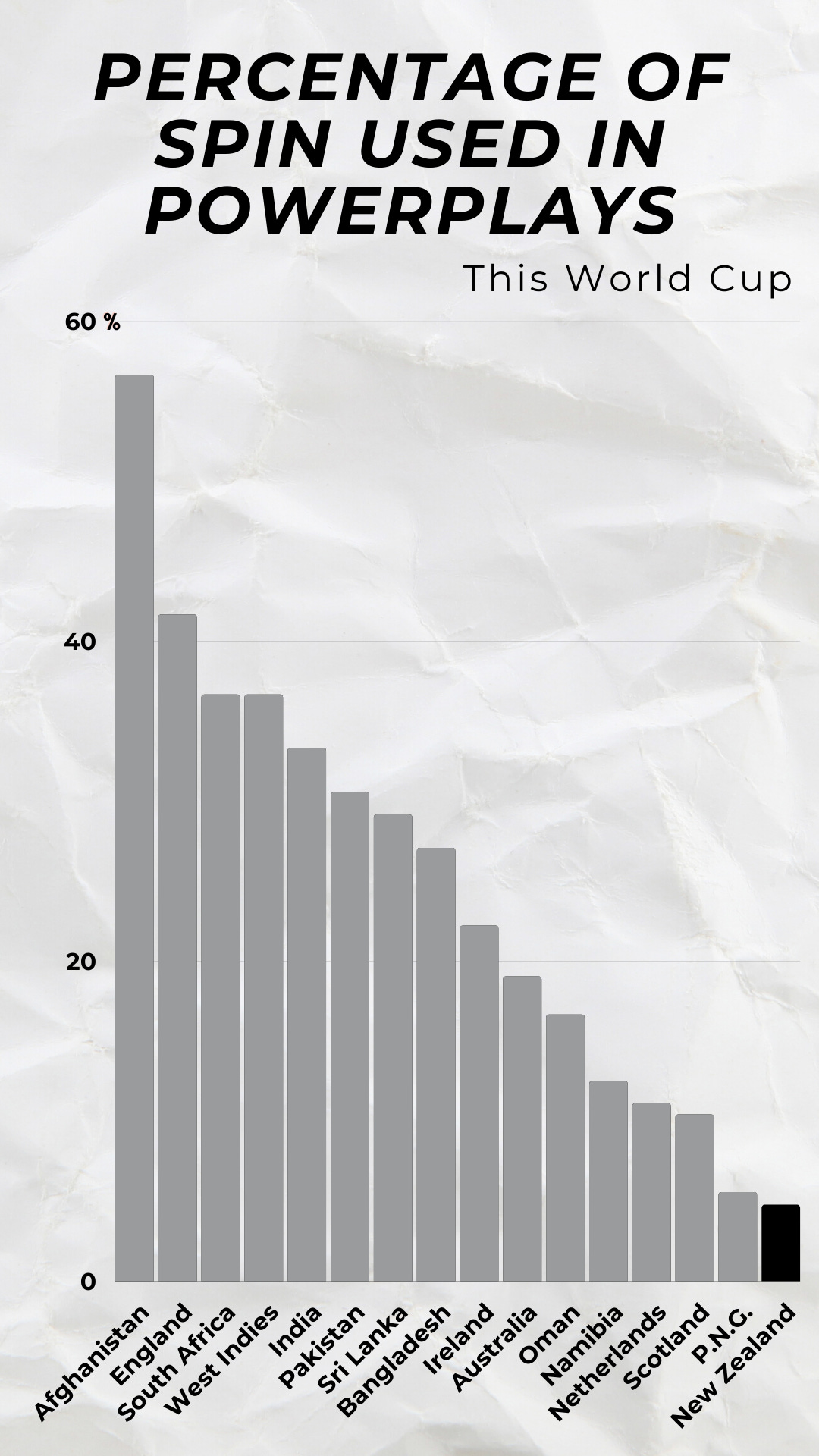
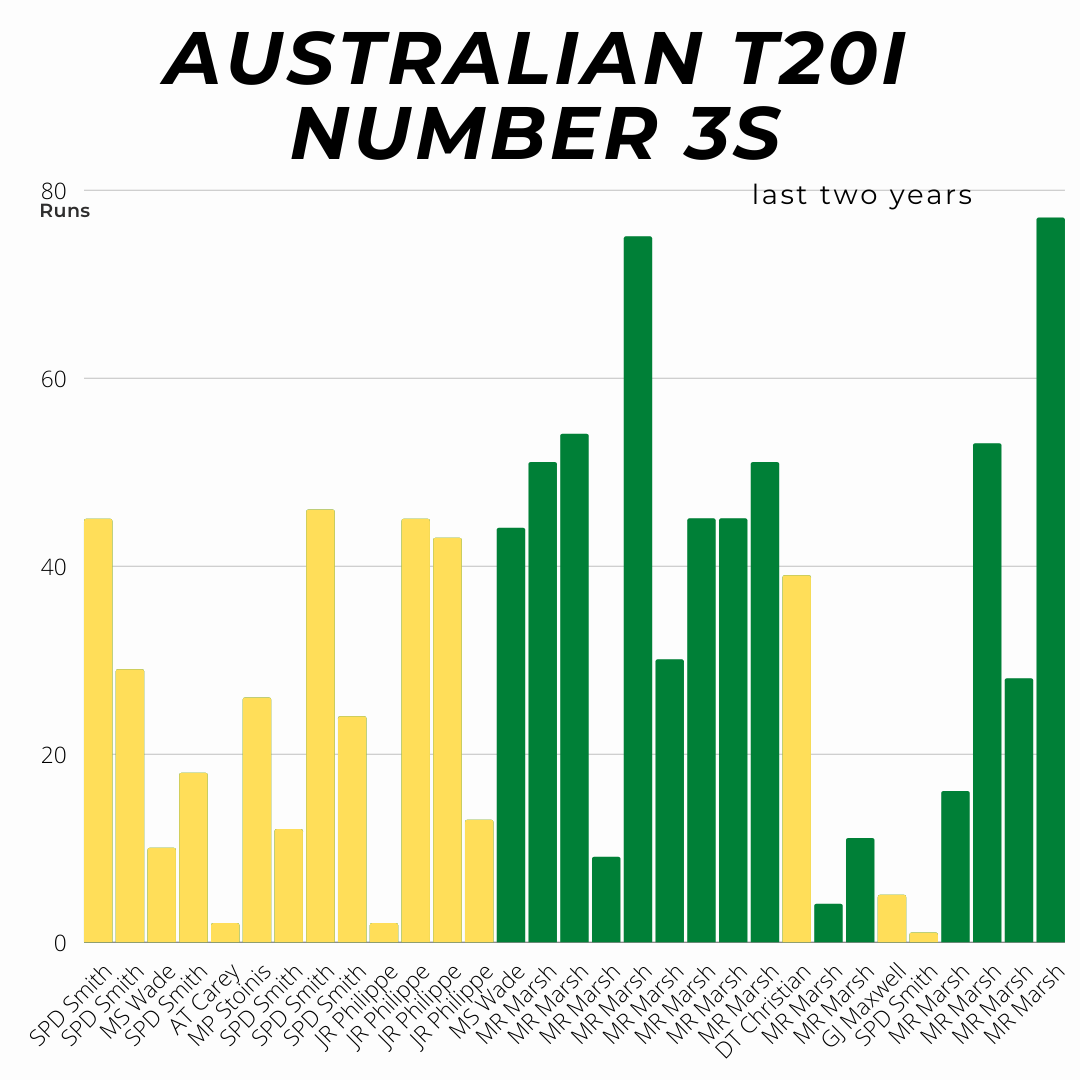
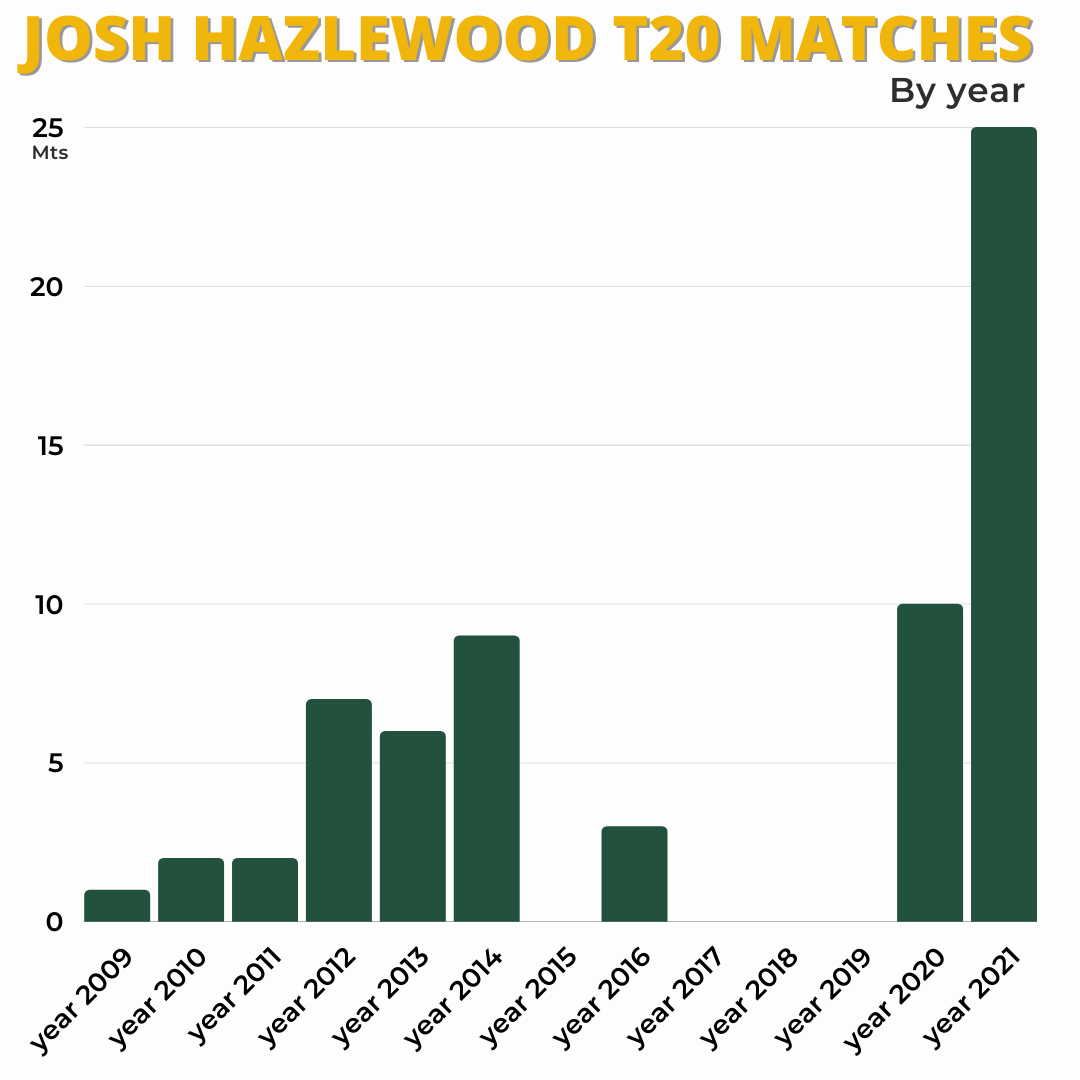
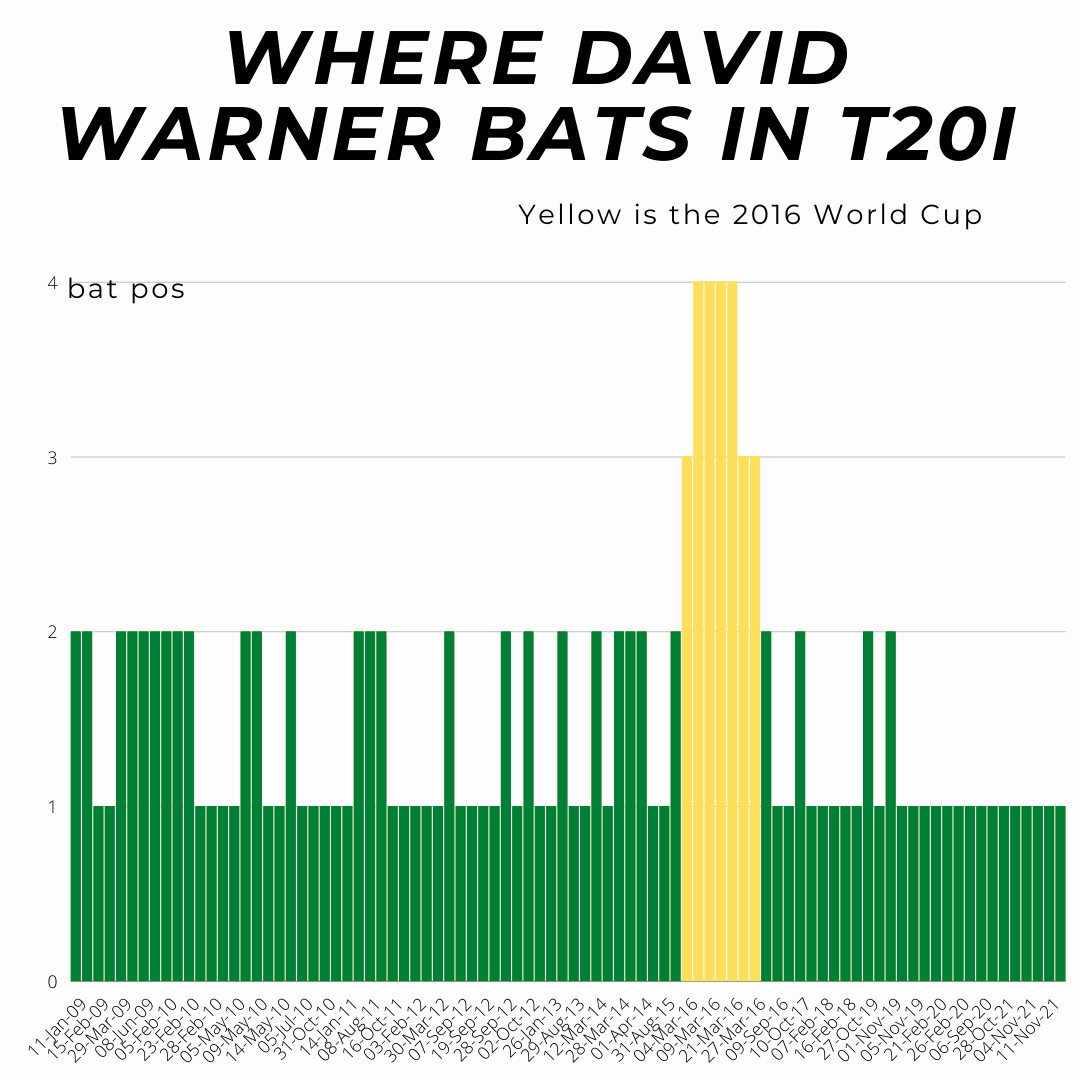

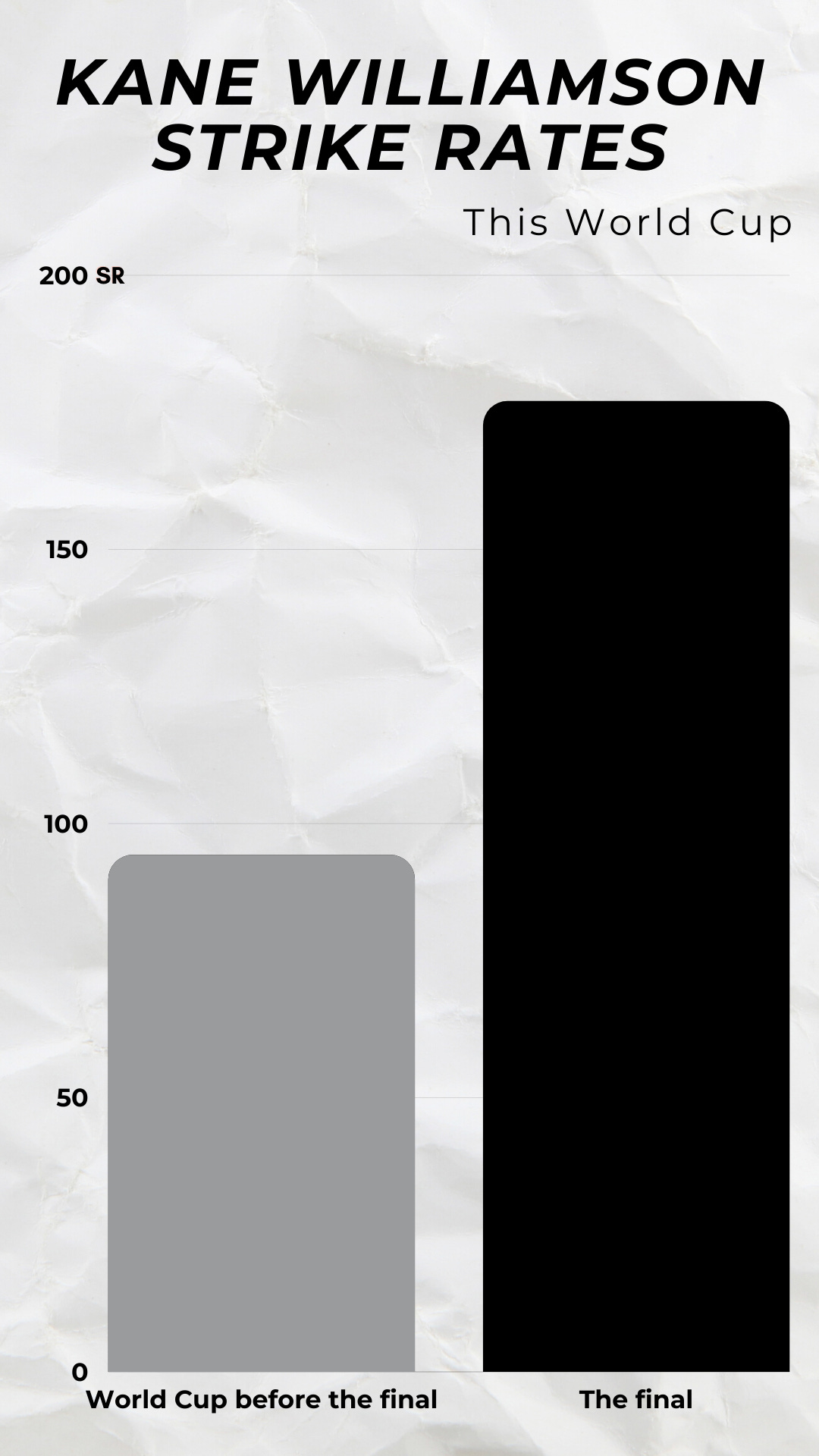
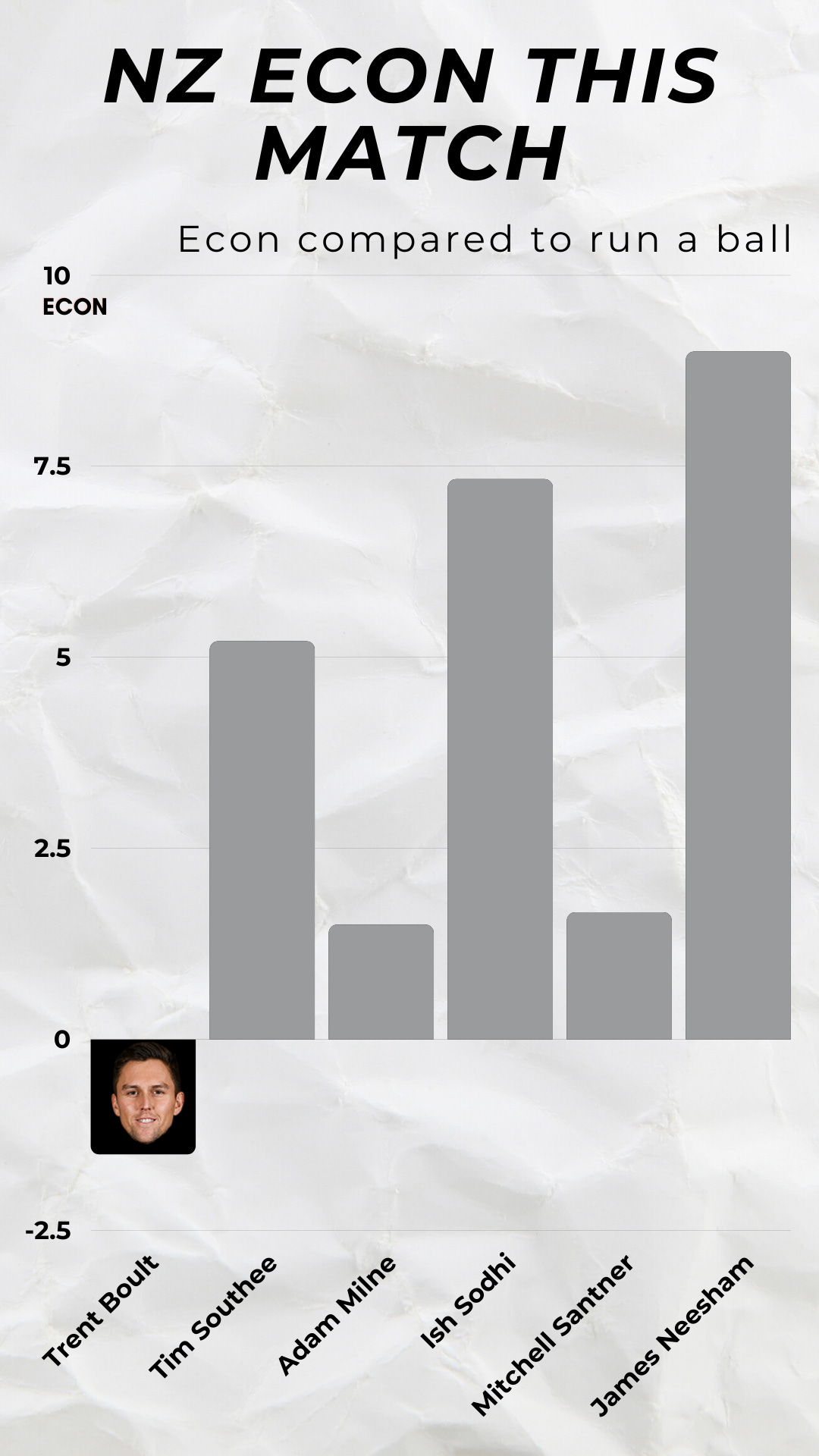
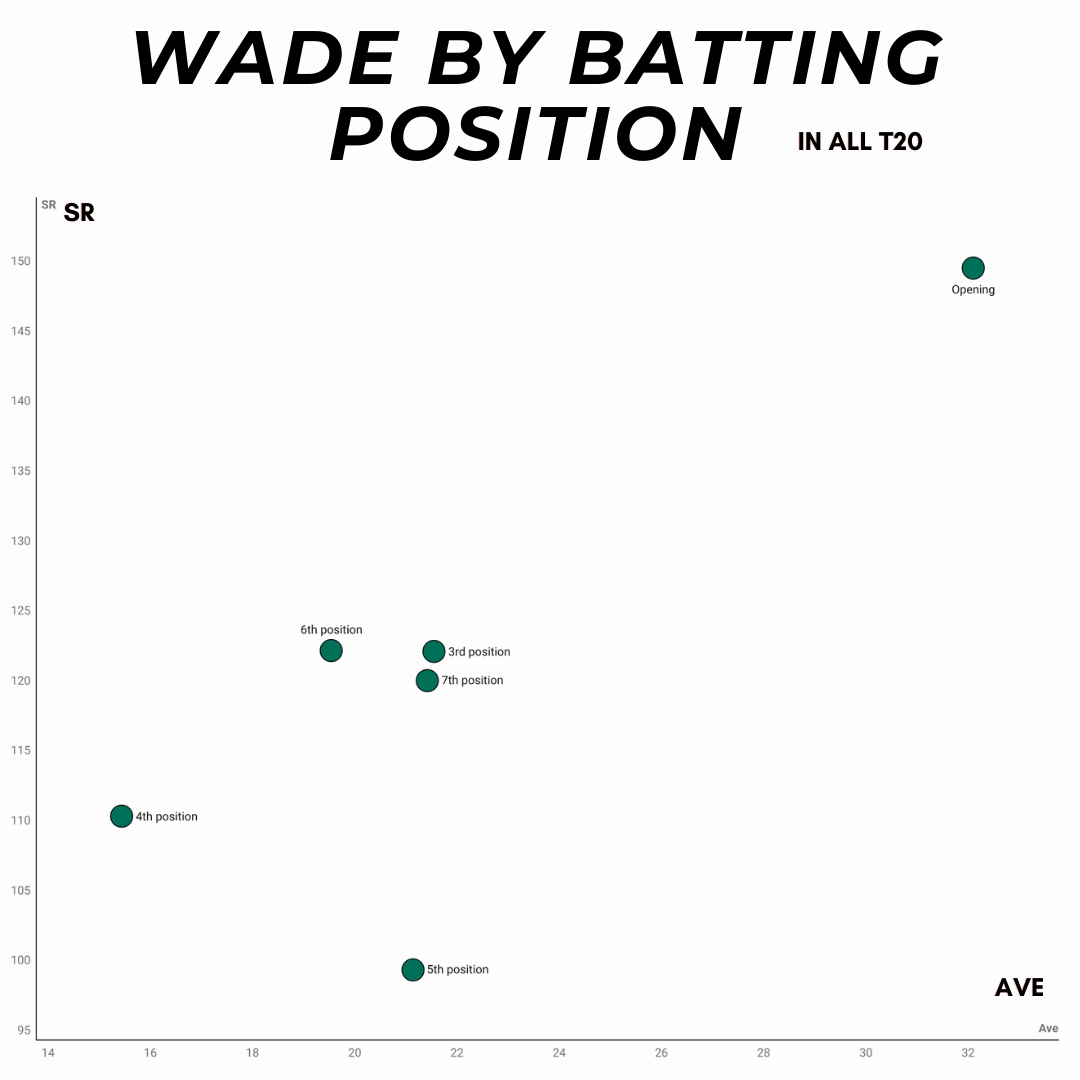
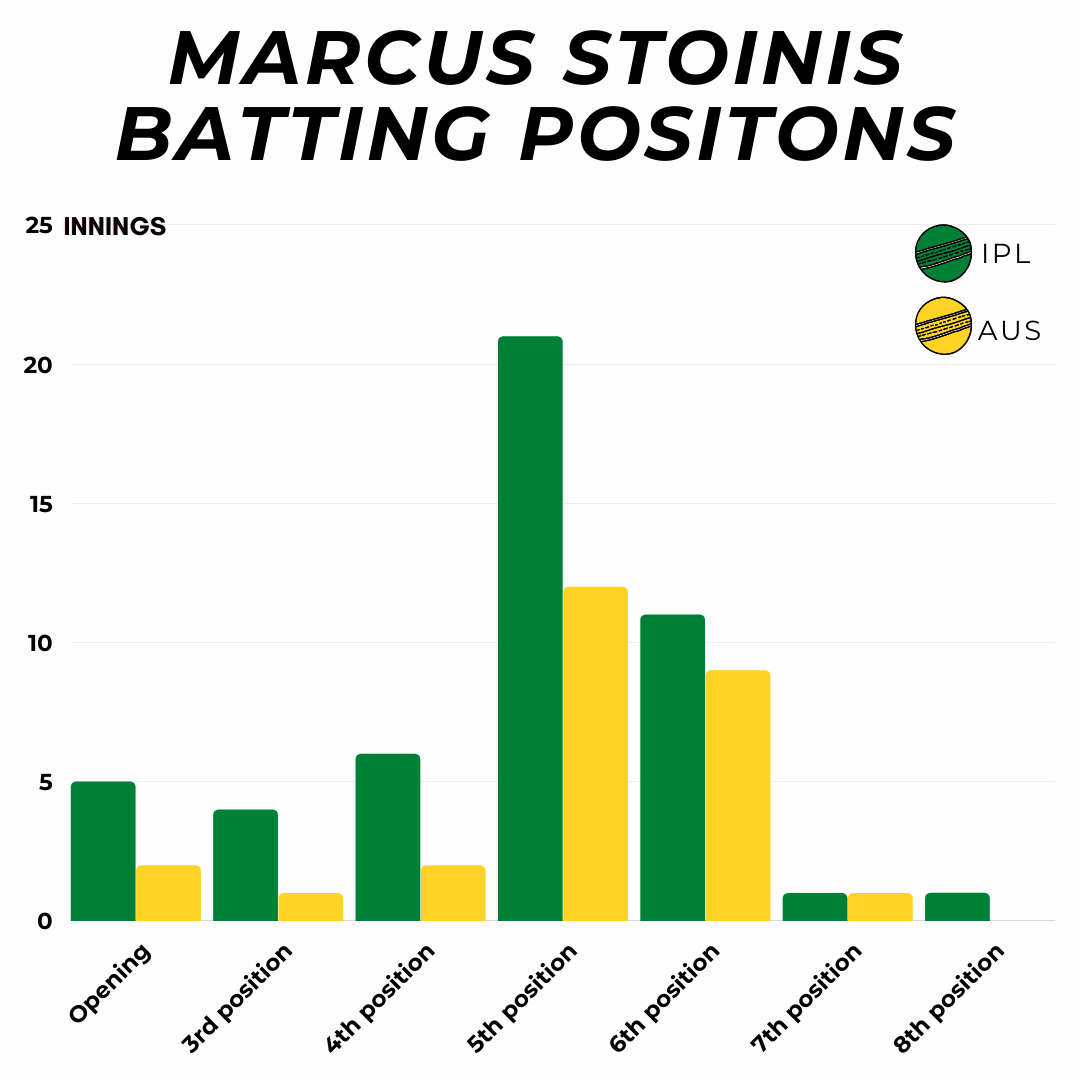
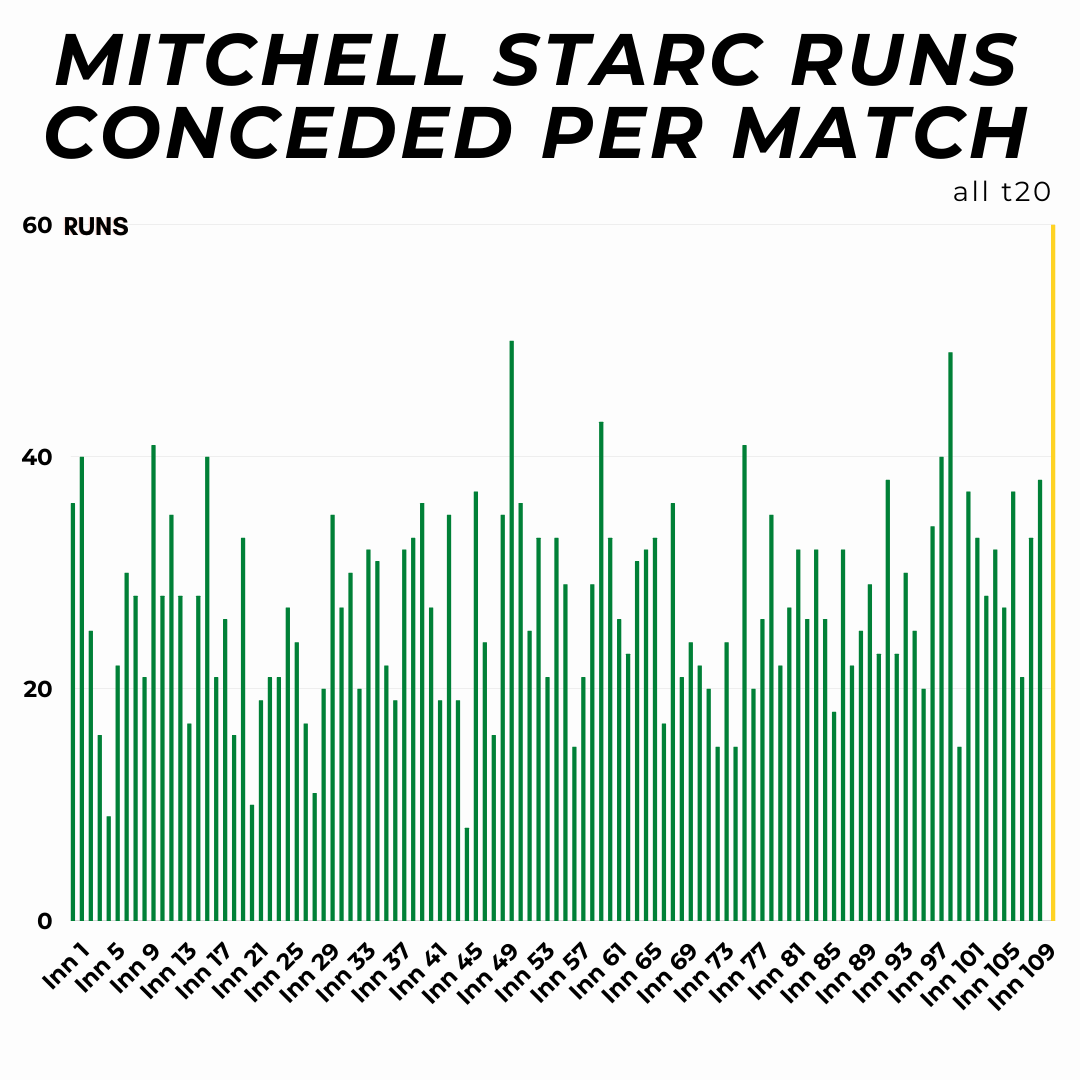
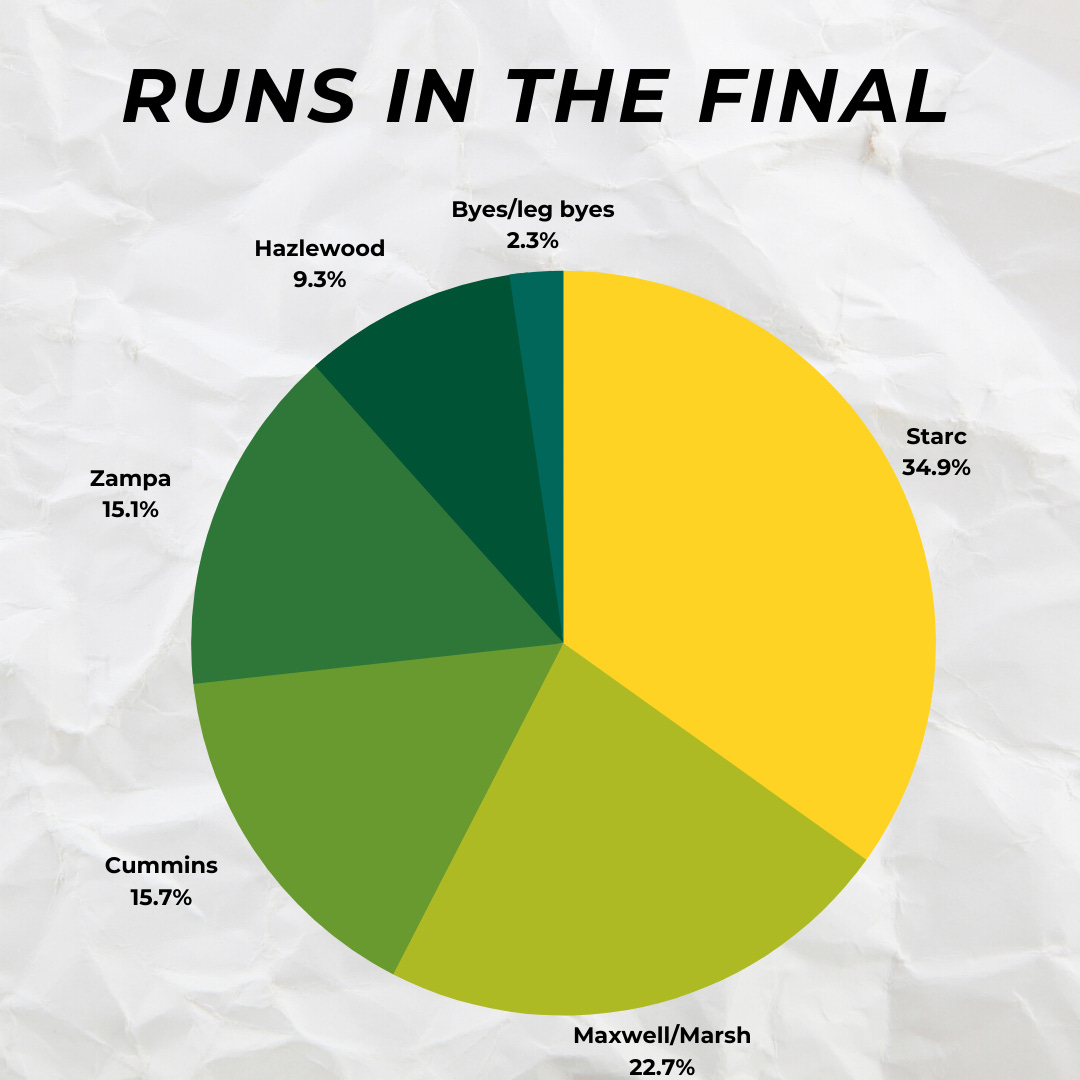
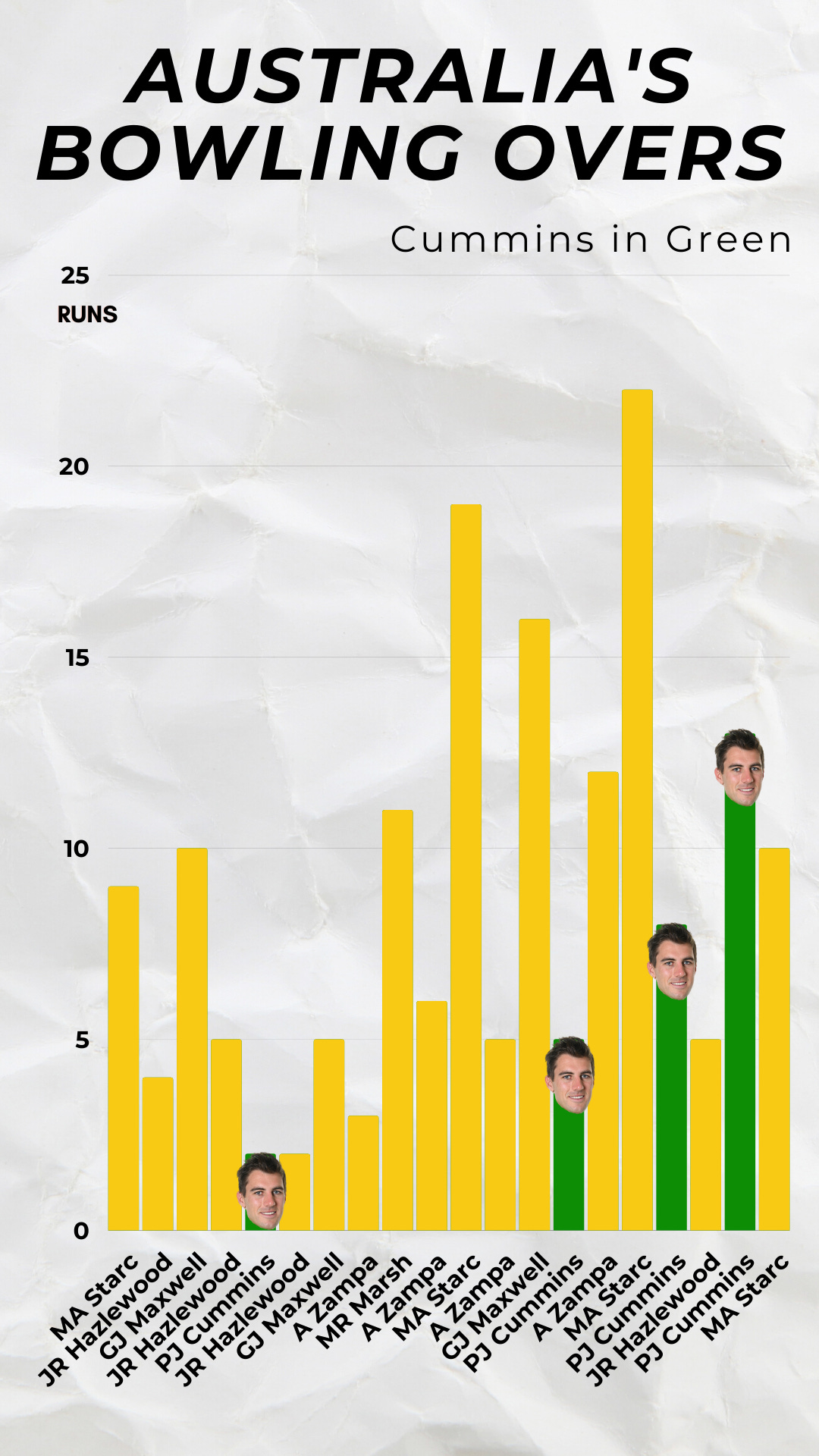

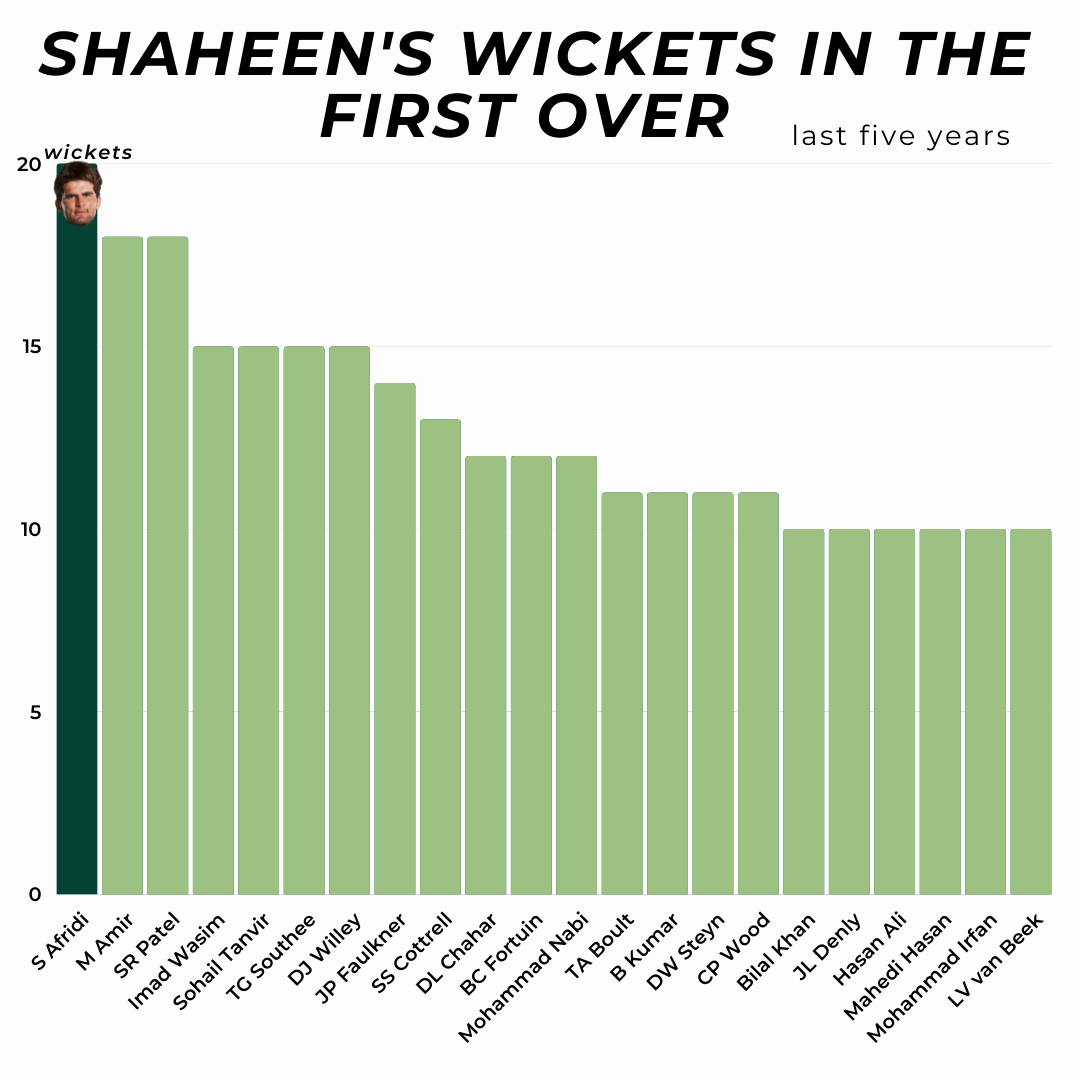
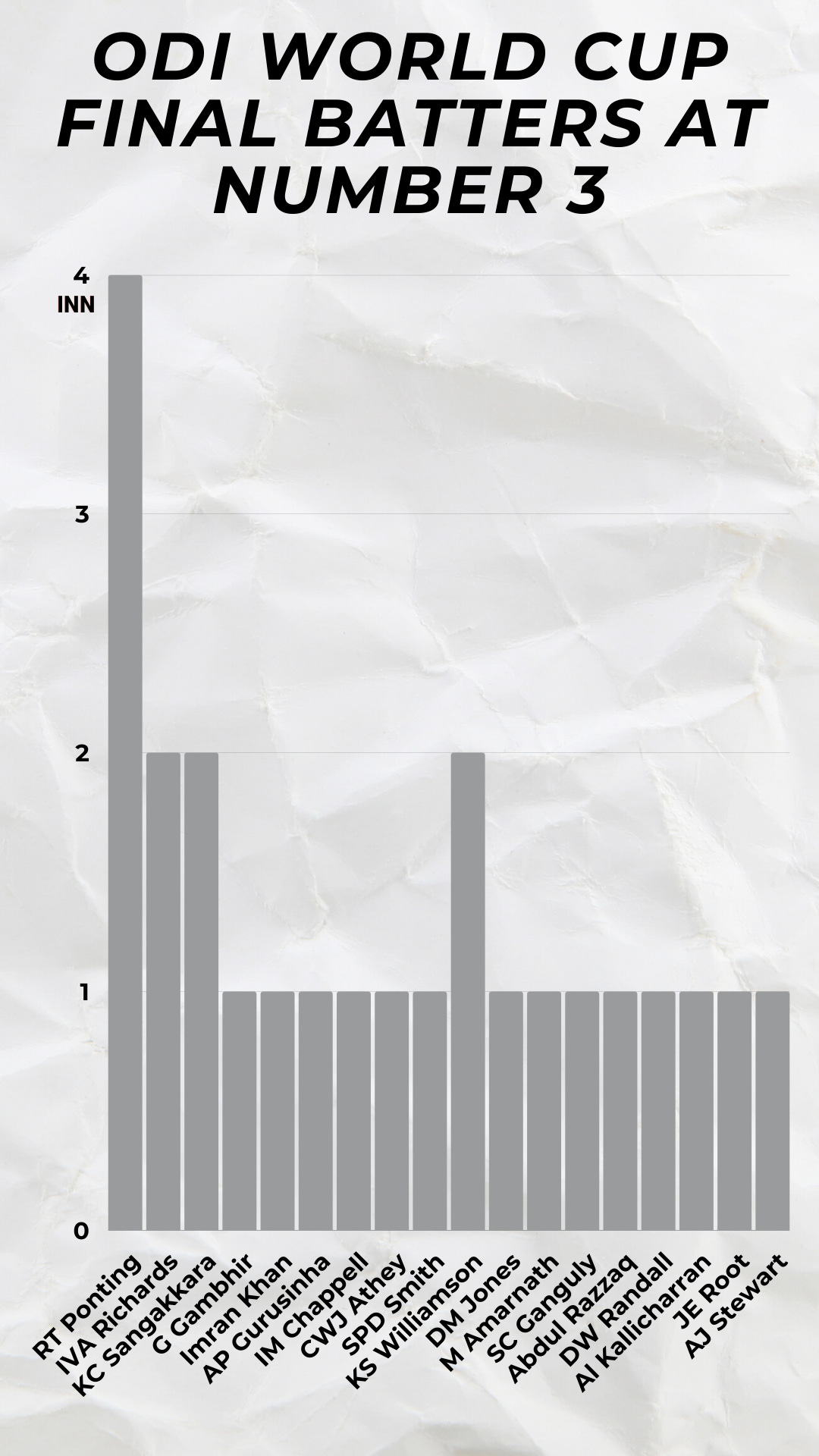
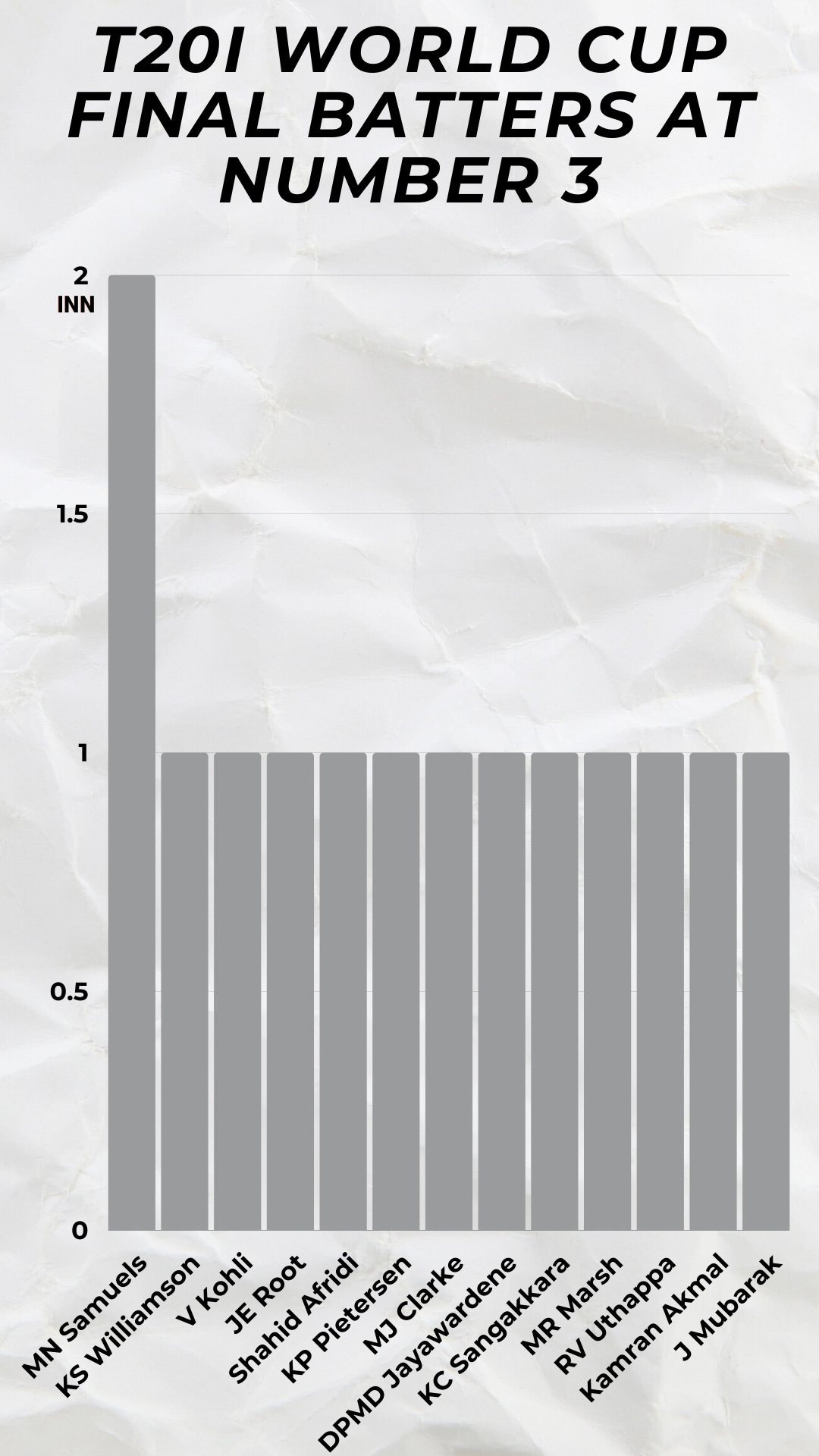
Jarrod, I would like to read your article on why is New Zealand finds Australia so difficult to defeat in every format and in every condition. They are mentally lost when they come up against their Tasman rivals.
I think it is wrong to call someone an allrounder. There aren't many in the game. The only true allrounders were Sobers and Kallis. The rest are neither here nor there. Even the 4 supposed to be allrounders of the 80s were exceptional in one aspect but were found lacking in the other. Imran Khan who had better credentials than the other 3, was a distant second or third when compared to those 2.